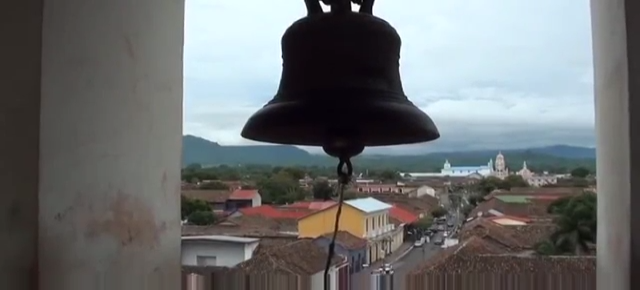
All Mennonite World Conference member churches who participated in the recent Global Anabaptist Profile (GAP) survey were asked the following two questions: “If the government required military service, what would you do?” and “Do you agree or disagree that it’s okay for Christians to fight in a war?”
For the Convención de las Iglesias Evangélicas Menonitas de Nicaragua (CIEMN), one of the Anabaptist conferences in Nicaragua who participated in the GAP, these questions were not hypothetical or theoretical. They were very recent history.
In 1983, for the first time in Nicaraguan history, the government required compulsory military service for all young men. But CIEMN and other Anabaptist churches were peace churches who understood nonviolence as a faithful Christian response.
The churches themselves were yet quite young in 1983, tracing their origins to the relief efforts that had sprung up in response to the devastating 1972 earthquake. Seven years later in 1979 the entrenched Somoza dictatorship was defeated by the Sandinista National Liberation Front (FSLN). When armed opposition to the FSLN increased, however, the new government found itself needing more troops and more money, and the draft was established.

“This Obligatory Military Service law was something unknown in our history and it was something that truly took us by surprise,” remembers Mennonite church leader Marcos Orozco.
“Neither the church nor its leaders nor its young people were ready to face this new challenge.”
Young people who accepted military service faced the terrible reality of being asked to kill their fellow Nicaraguans; those who objected were taken to prison; still others fled the country to avoid service. Yet these years were also a formative time for the churches, particularly for the youth, who found themselves organizing in response.
“These adverse circumstances were a determining factor in the development and growth of the church [during the years of the draft],” said Orozco.
And indeed, the responses of CIEMN members in the GAP survey testify to some deep formation. Eighty-six percent of respondents from CIEMN reported that they would refuse to participate or seek alternative service should the government require military service. (The Nicaraguan government ended compulsory military service in 1990.)
A whopping 93% disagreed with the statement “It’s ok for Christians to fight in a war.”
When asked to provide some background on the uniformity of response to these two questions, Orozco offered the following:
“In the 1980s [when the draft was implemented] we recognized that we would be killing other brothers in the church. The church was not prepared, but we were clear that we couldn’t do this….that we wouldn’t go to war in any form.”
In 2013 Mennonite Central Committee supported the creation of a video to tell the story of the Anabaptist churches during the period of compulsory military service, based on interviews with members of the Mennonite and Brethren in Christ churches in Nicaragua. [Read more about the video and the Nicaraguan churches’ story on MCC LACA’s website: http://www.mcclaca.org/the-way-is-peace/.]
The testimonies are moving, but they do far more than simply illuminate this one historical period.
Instead they bring the past into the present and redefine “conscientious objection” for a context where military conscription is no longer mandatory, but violence is alive and well.
As Maynor Curtis testifies in the video, “A conscientious objector is a person who little by little understands what God’s word says and puts it into practice in the moment when you confront violence in your reality.” May we receive Maynor’s words as a challenge and allow God to shape us as conscientious objectors in both spirit and action.